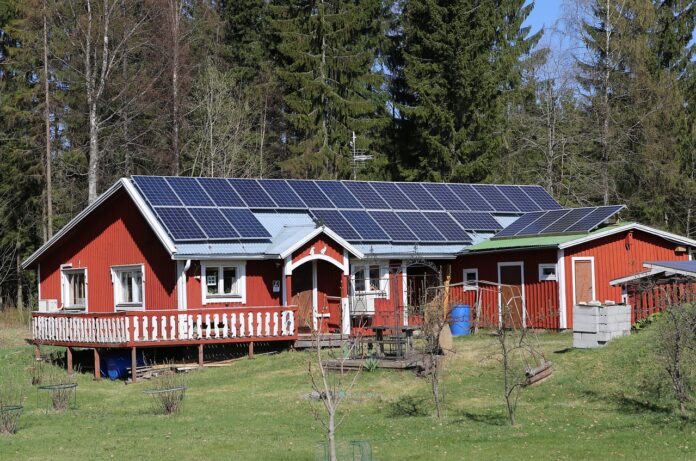Determining whether your house is right for solar panels depends on several factors. Here are some key considerations to help you assess if your home is a good candidate for solar:
- Location: The amount of sunlight your house receives is a crucial factor. Solar panels work best in areas with plenty of sunshine. If your house is located in an area with a high average annual solar irradiance, it’s more suitable for solar panels. You can check solar maps or consult a local solar installer to assess your region’s solar potential.
- Roof Orientation and Tilt: The ideal roof for solar panels faces south, southeast, or southwest to maximize sun exposure throughout the day. Additionally, the tilt of your roof should match your latitude for optimal energy generation. However, solar panels can still be installed on roofs facing other directions or with different tilts, but they may be less efficient.
- Roof Condition: Your roof should be in good condition and able to support the weight of solar panels. If your roof is old or needs repairs, it’s advisable to address these issues before installing solar panels. A strong, durable roof is essential to ensure the longevity of your solar system.
- Shading: Trees, buildings, or other obstructions that cast shadows on your roof can reduce the efficiency of your solar panels. It’s essential to evaluate any potential shading issues throughout the day and year.
- Local Regulations: Check your local building codes and regulations regarding solar panel installation. Some areas may have restrictions or requirements that affect your ability to install solar panels.
- Financial Considerations: Evaluate the cost of solar panel installation, available incentives, and your electricity usage to determine if solar panels make financial sense for your home. Consider factors such as tax credits, rebates, and potential energy savings.
- Energy Usage: Analyze your household’s energy consumption. Smaller homes with lower energy usage may require fewer solar panels to meet their needs, making solar a more cost-effective option.
- Net Metering: Investigate whether your utility company offers net metering. Net metering allows you to sell excess solar energy back to the grid, potentially reducing your electricity bills further.
- Aesthetics: Consider the visual impact of solar panels on your home. Some homeowners associations or local regulations may have restrictions on the appearance of solar panels.

The Bottom Line
To determine if your house is right for solar, it’s advisable to contact local solar installers or providers. They can assess your specific situation, provide a solar site evaluation, and offer recommendations tailored to your home’s characteristics and energy needs. They can also help you calculate the potential return on investment and guide you through the installation process.


